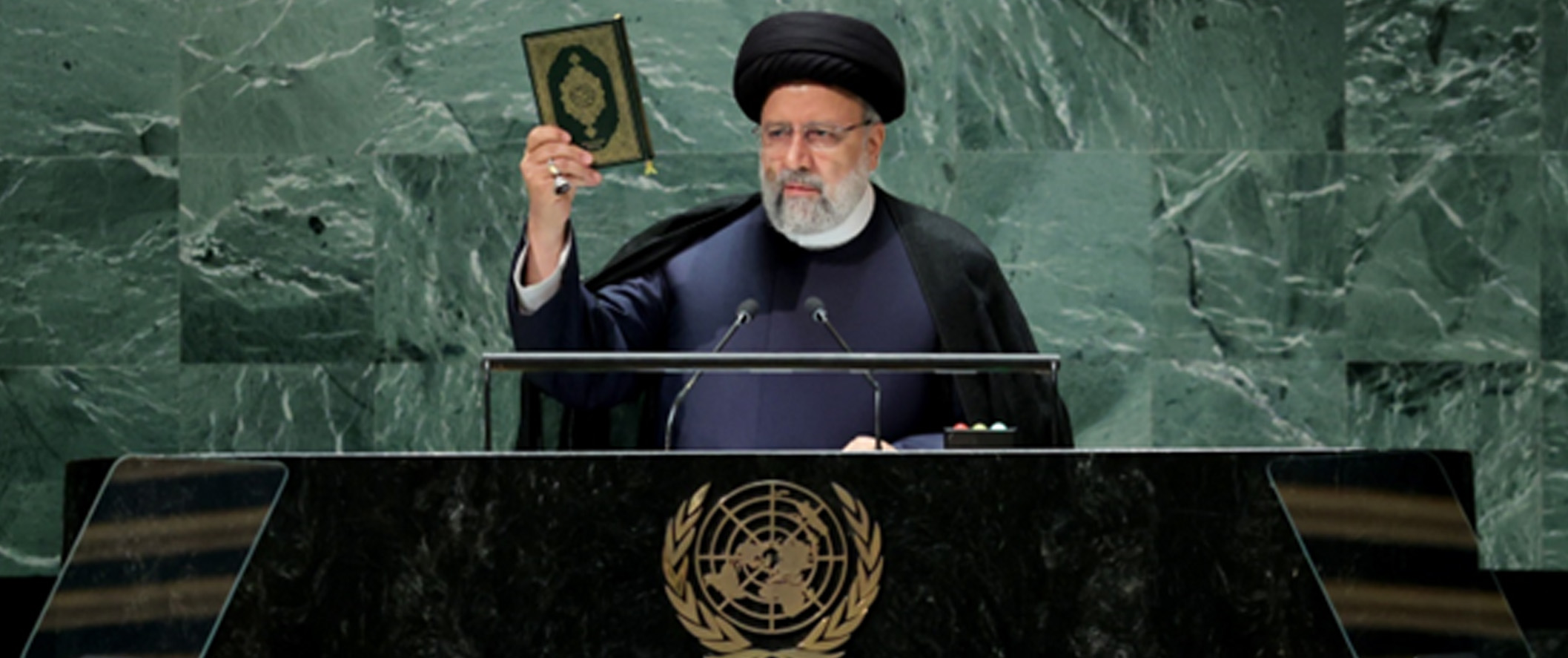Geneva | WTNS | Sep 23:The President of Iran, Ebrahim Raisi, on Wednesday said the holy book of Muslims Quran never burns as it is eternal. The book will remain even when the earth itself is gone.
The President of Iran, Ayatollah Sayed Ebrahim Raisi, on Wednesday said the holy book of Muslims Quran never burns as it is eternal.
The book will remain even when the earth itself is gone.
Raisi made comments while addressing at United Nations General Assembly.
“The Quran never burns. It is eternal. It is ever lasting. When the earth itself is gone, the Quran remains. The fire of insults and falsehood will never distort the truth in this book,”Raisi said.
In 2023, a number of instances of Quran-burning occurred in Sweden, the most notable of which occurred on June 28, when a 37-year-old Iraqi Christian refugee ripped out and set fire to pages of the Quran outside the Stockholm Mosque.
This incident caused international protests and condemnation, particularly among the Muslim world.
On 20 July, this person desecrated the Quran again in Stockholm, resulting in more protests and attacks, including arson, against the Swedish Embassy in Baghdad, starting a day before.
This resulted in several follow-up protests in Denmark, in which the Quran was burned outside the embassies of several Muslim-majority countries.
Iranian President Ebrahim Raisi focused on defending Islam and the traditional family, as well as Iran’s nuclear program, and called on the United States to revive the 2015 nuclear deal in his speech to the UN General Assembly on Tuesday.
The leader said attacks on traditional gender roles should be considered “war crimes.”
“These are divine words: mother, father. They are natural words and concepts,” the ultra-conservative politician told those attending the opening of the 78th session of the General Assembly in New York.
On a day marked by international calls for peace in Ukraine, and in which Ukrainian President Volodymyr Zelensky personally intervened, Raisi said that crimes against humanity are not only “the occupation of territories and the oppression of people and mass murders.”
“A concerted attack on the family itself is also a crime against humanity,” said the Iranian leader, for whom “the sanctity of marriage between a man and a woman is an inherent truth that must be accepted by the entire world.”
Earlier, the Iranian president, who spoke for more than half an hour, also held up a copy of the Koran and defended the teachings of Islam’s holy book.
Criticizing the banning of headscarves in schools and the burning of the Koran at demonstrations, he said that “Islamophobia and cultural apartheid are evident in the West” and called for the UN to play a greater role in defending religions.
Raisi continued his speech by criticizing Western countries and their “arrogance” and defended the concept of a new, more egalitarian world order.
The Iranian echoed the Russians, who usually frame their struggle with the industrialized countries in terms of a confrontation between the “global south” -of which they consider themselves to be part of- and the colonial powers.
He referred in particular to the United States, which he accused of having “the largest prison for women, and therefore mothers, in the world” and of falsifying news about Iran to give it an “illegitimate” image.
“I repeat, they are the past. We are the future,” Raisi said.
The president also accused Washington of fanning the flames of the conflict in Ukraine to weaken Europe as part of its “long-term plan,” and said his country supports any political initiative to resolve the situation.
Finally, Raisi assured that Iran is not seeking to acquire nuclear weapons, but will not abandon its peaceful nuclear program, and demanded that the United States explain with data its withdrawal from the 2015 nuclear pact.
In 2018 former US President Donald Trump (2017-2021) abandoned the deal arguing it was too generous towards Tehran and reimposed economic sanctions on Iran.
In January 2021, US President Joe Biden attempted to negotiate the reinstatement of the 2015 nuclear deal, under which Iran agreed to limit its nuclear program in return for US, European Union, and United Nations easing sanctions.
However, the efforts to revive it ended in 2022 when Iran rejected the EU mediator’s offer.
Iran has been enriching uranium to levels far above those foreseen in the pact, justifying that the activities correspond to its peaceful energy development program and denying that it seeks to build a nuclear weapon.
Iranian President Ebrahim Raisi said the United Nations must be “the voice of nations and not the voice of the arrogant powers.”



